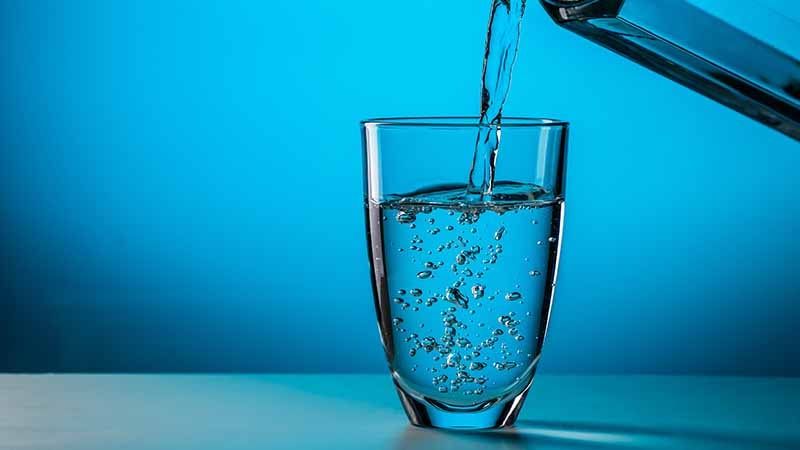Sparkling Water: Good Or Bad For Health?
- 43 months ago
Sparkling water is drinking water that uses carbon dioxide to give it that fizzy taste you find in cold drinks. Sparkling water or seltzer water is safe to consume so long as you dodge ones with added sugar or sugar alternatives.
Aerated or carbonated soft drinks are bad for our health; we all know that. And people have recently started moving towards a so-called healthy alternative: sparkling/carbonated water.
But is sparkling water really a better alternative for sweetened beverages? Or is sparkling water equally bad as sweetened beverages or soda? Well, if you have these questions on your mind, you’ve come to the right place.
In this blog, we’ll talk about what sparkling/carbonated water is, its benefits, and its side effects. And by the end, you’ll find who wins the sparkling water vs. soda battle. So, read along till the end.
What is sparkling water?
Sparkling water is nothing but water that has been infused with CO2 or carbon dioxide under pressure. This process offers the water a fizzy effect that makes it more delightful. You can also think of sparkling water as carbonated water, which has numerous types such as:
- Club Soda- It is enhanced with added minerals like sodium bicarbonate and potassium sulfate.
- Seltzer Water- It is simply carbonated water, although some varieties contain natural fruit flavors and/or sugar. According to The U.S. Food and Drug Administration seltzer and sparkling water are slightly different based on their carbonation processes.
- Tonic water- It is also artificially carbonated and enriched with additional minerals such as quinine, which gives it a slightly bitter taste. It also contains sugar or high fructose corn syrup. Compared to other sparkling water, tonic water should be limited as it has sugar in it.
Other names-
- Fizzy Water
- Soda Water
- Mineral Water
Similar to regular water, sparkling water also tastes bland. However, it’s fizzy. And its acidic nature makes consuming water more enjoyable.
Is sparkling water an alternative to sweetened beverages?
Sweetened beverages are both carbonated and, of course, sweetened. And this impacts your teeth, blood sugar negatively and causes a whole lot of issues.
On the other hand, sparkled water that contains no sugar at all is way less harmful than sweetened beverages or sodas. Also, the impact of carbon on your teeth is quite less. Sparkled water is only going to make you bloated or gassy, and that’s it.
So, if you’re a person who drinks a lot of soda and wants to quit but wishes for something more attractive than water, sparkling water is your way to go.
How does sparkling water affect health?
Sparkling water has both good and bad effects on your health. Let’s understand them in brief:
Benefits of drinking sparkling water
1. Keeps you hydrated
Sparkling water hydrates you as well as its non-fizzy counterpart. So, you can easily replace it with your glasses of regular water for hydration. However, make sure to avoid sweetened sparkling water.
Also check- Surprising causes of dehydration!
2. Helps with easy transition from sugary beverages
If you want to release yourself from soda addiction, sparkling water can help. It’s not as simple as plain water and also not as harmful as soda or sweetened beverages.
3. May relieve constipation
A study on people suffering from constipation after a stroke reported remarkable relief after two weeks of consumption of sparkling water. According to another study, sparkling water may also help ease indigestion.
4. It makes you feel full for long
Sparkling water impacts satiety or the feeling of fullness. It simply means after consuming sparkling water, you feel full for longer, which can prevent binge eating and thus calorie intake.
Also check: Natural food to curb your appetite
Side effects of consuming sparkling water
1. Teeth troubles
Although sparkling water contains less carbon than sodas, regular consumption can be harmful to your teeth. Phosphoric acid used to enrich the taste of carbonated drinks intervenes with calcium absorption and leads to loss of calcium.
However, there is no strong evidence that high phosphate intake affects bone metabolism or bone density. According to a study, colas, but not other carbonated beverages, are associated with low bone mineral density in older women.
2. Stomach issues
Sparkling water is a carbonated drink. It means you might experience bloating, gas, burping, and even stomach ache in some cases.
3. Avoid sparkling water if you have IBS (Irritable bowel syndrome)
If you want to quench your thirst, do it with water, lactose-free milk, or other healthy alternatives. The foam in soda and carbonated drinks can cause a carbonation effect in the gastrointestinal tract and cause uneasiness.

What flavors can you add to sparkling water?
If you don’t like plain sparkling water, here’s what you can do:
- Add some slices of citrus fruit or cucumber.
- Add a splash of pure fruit juice, pomegranate for instance.
- Mix some chunks of mango or watermelon.
- Drop a few strawberries or blueberries.
- Add a few mint leaves.
By opting for the above methods or by adding some fruits or vegetables, you can enhance the nutritious value of sparkling water and benefit from the minerals and vitamins they bring along.
FAQs on sparkling water
Is it ok to drink sparkling water every day?
Yes, you can replace some glasses of your normal water with sparkling water as long as it’s unsweetened. Although the carbon might impact your teeth and bones, the effect is less than the soft drinks.
Is it bad to only drink sparkling water?
While it’s not recommended to switch to sparkling water completely, there isn’t any evidence suggesting that you should not. Sparkling water isn’t that harmful to your teeth or to your bones. It rather improves constipation.
However, it’s better to avoid completely living off of sparkling water as it can slowly impact your teeth and cause gas issues.
Does sparkling water make you gain weight?
Nope, it’s the other way around. Sparkling water, as stated earlier, helps you feel full for longer, which means fewer calories intake. Moreover, this amounts to weight loss and not gain.
Is sparkling water better than diet soda?
If you're craving a bubbly drink, go for sparkling water. Diet soda contains zero calories but it is high in sugar and aspartame and has been linked to restricting weight loss and increasing tooth decay. You can also try healthier alternatives to diet soda.
Key takeaway
Sparkling/carbonated water truly acts as a refreshing alternative to soda or sweetened beverages. It offers you hydration, prevents constipation, and also might help you lose weight. While you can consume sparkling water instead of plain water, make sure to do so in moderation.









